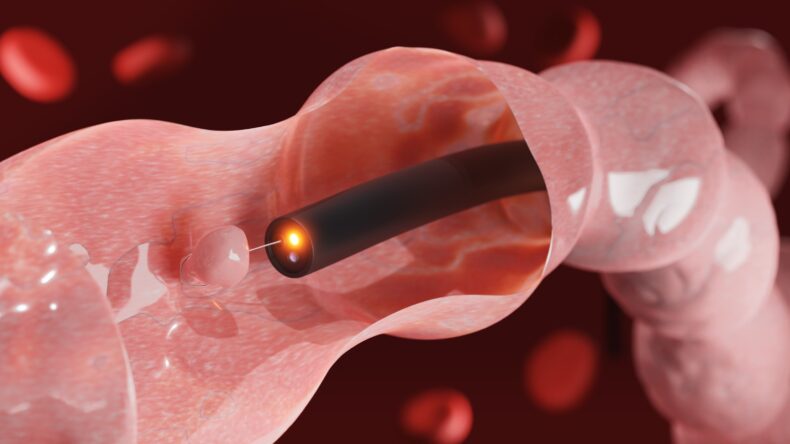Detecting adenomas by colonoscopy remains one of the main preventative measures for colorectal cancer (CRC). Unfortunately, using white-light colonoscopy without probing for a particular molecular marker of adenomas can lead to 30% of lesions going undetected.
Md. Jashim Uddin, PhD, Larry Marnett, PhD, and colleagues chose to use COX-2, an enzyme that increases inflammation and is upregulated in preneoplastic lesions and CRC, as a marker for developing a fluorescent imaging agent to increase adenoma detection.
The researchers discovered that a fluorescent inhibitor of COX-2 administered before colonoscopy allowed for clear identification of adenomas in mice, whereas normal colons were not labeled by this fluorescent compound. They used an FDA-approved polymer to ensure formation of COX-2 inhibitor-containing nanoparticles for easy administration and translation to clinical use.
This work, reported in the Journal of Biomedical Optics, signifies an advance in adenoma detection by colonoscopy, which could reduce the number of CRC diagnoses.
Co-authors of the report also included Hiroaki Niitsu, MD, PhD, and Robert Coffey, MD. The research was supported by the National Institutes of Health (grants CA089450, CA197570, CA241685, CA229123, CA236733), Phi Beta Psi Sorority Charity Trust, and Nicholas Tierney GI Cancer Memorial Fund.











